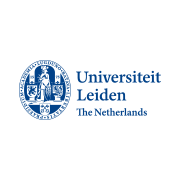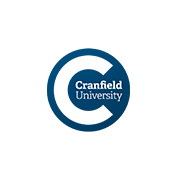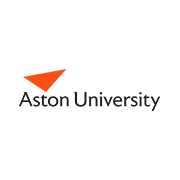Newly developed programme seeks to ignite commercialisation of humanities, arts, and social science research in South Africa
The British Council, Entrepreneurship Development in Higher Education Programme (EDHE) and Human Sciences Research Council (HSRC) have joined forces to launch an interactive professional development programme on Impact generation through the commercialisation of research. This programme intends to contribute to economic growth and positively influence change in Sub-Saharan youth employment levels by preparing and equipping young Africans, including graduates to develop businesses, services, and products.
The Strengthening Commercialisation Skills (SCS) programme is one of the interventions aiming to address high unemployment rates in South Africa. This initiative is born out of a research project jointly undertaken by the EDHE and the British Council. Between 2020 and 2021, EDHE and the British Council commissioned Oxentia, a UK based innovation management and technology commercialisation consultancy, to map the South Africa national public university innovation ecosystem. The project focussed on evidence gathering to inform research commercialisation capacity strengthening as well as the development of a National Policy Framework. The mapping report concluded that while the South African innovation ecosystem is a rapidly changing landscape, with pockets of excellence and good practice, (…) “there is a lack of commercialisation of research in the Humanities, Arts and Social sciences at universities, partly due to the lack of knowledge and skills on how to commercialise research outputs in these disciplines, adding that this area is one of emerging focus for the sector” said Meekness Lunga, the British Council Senior Regional Manager, Higher Education in Sub-Saharan Africa.
The mapping project therefore demonstrated the need to raise awareness about and embrace commercialisation of humanities, arts, and social science research outputs more widely across South African universities including awareness of the generation of impact from traditional knowledge. The first cohort of SCS participants, selected in Autumn 2022, kicked off with a series of virtual workshops focussing on the fundamentals of Humanities, Arts and Social sciences commercialisation and mentoring sessions, aiming to consolidate the key learnings from the workshops. The programme has been designed and delivered by Oxentia, which has been a convener and leader in the field of Social sciences, Arts & Humanities innovation, and commercialisation since 2016.
To ensure the long-term effectiveness of the programme, the participants are a diverse group of academics and technology transfer managers representing the following South African public universities:
- The University of Cape Town (UCT)
- Durban University of Technology
- Stellenbosch University
- University of Fort Hare
- North-West University
- University of Johannesburg
- University of South Africa
After the virtual training and mentoring phase, the programme will culminate in an in-person residential exchange programme in Oxford UK in February 2023. By leveraging Oxentia’s network, the residential programme will connect South African Universities to some key institutions in the UK ecosystems. In addition, Oxentia will introduce participants to ASPECT, a network of UK institutions dedicated to the development of best-practice to deliver impact from the Social Sciences, Arts and Humanities research.
Speaking on behalf of Oxentia, Dr Alexandra Bush, Head of HEI services at Oxentia, added that “the SCS programme will promote knowledge exchange and best-practice sharing between South African and UK universities to achieve sustainable social and economic impact”. Similarly, according to EDHE and HSRC, the training and piloting of the programme will introduce a landscape that escalates humanities and social sciences into pathways of societal impact, ground-breaking collaborations with universities, industry leaders, philanthropists and academic communities.
In addition to the training and mentorship components of the programme being delivered by Oxentia, the participants will in fact deliver multiple workshops across South Africa in 2023 to further cascade the knowledge, insights, and experiences from the programme more widely within their institutions and regions. “Our hope is for this train the trainer component to result in meaningful changes in policy and practice within the participating universities so we see the participants as change makers or catalysts for institutional change” said Meekness Lunga, (British Council).
__________________________________________________________________________
To learn more about Oxentia’s social impact and commercialisation for social sciences, arts & humanities work, explore our website, sign up for our newsletter, follow us on social media, or directly contact Irene Dal Poz, Head of Impact Strategy.
About the British Council
The British Council is the UK’s international organisation for cultural relations and educational opportunities. We support peace and prosperity by building connections, understanding and trust between people in the UK and countries worldwide. We work with people in over 200 countries and territories and are on the ground in more than 100 countries. In 2020–21 we connected with 67 million people directly and with 745 million people overall.
About the Human Sciences Research Council (HSRC)
The HSRC was established in 1968 as South Africa’s statutory research agency and has grown to become the largest dedicated research institute in the social sciences and humanities on the African continent, performing cutting-edge public research in areas that are crucial to development.
Our mandate is to inform the effective formulation and monitoring of government policy; to evaluate policy implementation; to stimulate public debate through the effective dissemination of research-based data and fact-based research results; to foster research collaboration; and to help build research capacity and infrastructure for the human sciences.
The Council conducts large-scale, policy-relevant, social-scientific research for public sector users, non-governmental organisations and international development agencies. Research activities and structures are closely aligned with South Africa’s national development priorities.
About the Entrepreneurship Development in Higher Education Programme (EDHE)
The EDHE Programme is people-focused. It is intended to develop the entrepreneurial capacity of students, academics and leaders. The intention is for students to be more successful in terms of becoming economically active during and after their tertiary education. Entrepreneurial activity during their studies could enable students to generate an additional income and fast-track the process of becoming economically active. Upon graduation, students would be able to consider entrepreneurship as a career, either as a first choice, or as an alternative, especially if they have difficulty in finding employment.



























